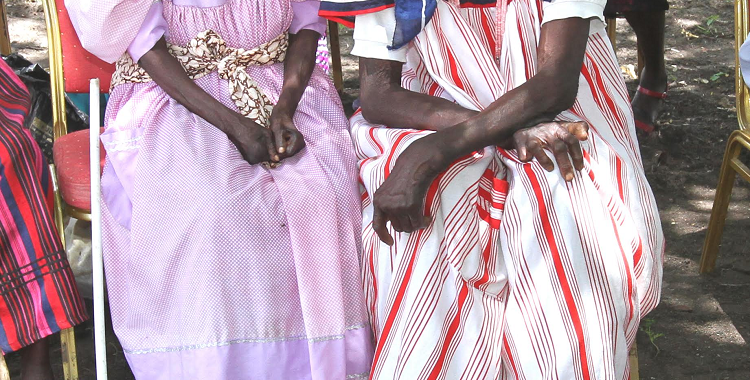Alice Cruz, who visited Angola in the last two weeks, told the Lusa news agency that she already had a country "deeply marked by social inequality and poverty", factors that are associated with Hansen's disease.
"I was very surprised by the late diagnosis rate. The vast majority [of patients] have a very late diagnosis and have very developed physical disabilities. I confess that this surprised me a lot", she said, at the end of the visit.
Alice Cruz, Portuguese and the first UN Special Rapporteur for the Elimination of Discrimination against Persons Affected by Leprosy and their Families, considered that there are several factors that contribute to this situation.
On the one hand, "initially the symptoms of Hansen's disease are neglected, because they are not severe".
The lack of self-care and the difficulties people face in accessing health care, especially the poorest, also contribute to this state of affairs.
The special rapporteur also warned of the impact of the "loss of capacity of the health system to diagnose the disease, after it was eliminated as a public health problem by the WHO [World Health Organization] in 2005".
"It is thought that the disease does not exist, but it does exist. It is only a matter of percentage. The disease is still there, but then it is disinvested," she said.
He added: "There has been a reduction of civic space around Hansen's disease, it has led to a loss of resources, loss of knowledge of the disease."
"When people go looking for a diagnosis, they often make a pilgrimage to the various health services until they have their disease diagnosed", she said, adding that "people often live far away and have difficulty getting their monthly medication".
The special rapporteur also indicated that she has identified many children with the disease and many barriers, including difficulties in actually gathering data on the disease in the country.
Before the covid-19 pandemic, the incidence was around 600 to 800 new cases per year.
Given the percentage of children, "which is very high, and the physical disabilities that people already have when they are diagnosed, then transmission is happening."
"This is a disease that cannot be eradicated, there is no vaccine. It is a disease that is always associated with poverty, social inequality, vulnerability", she stressed.
The expert met with government representatives, civil society organizations, experts in health, law and social sciences, as well as affected people, their families and their representative organizations.
Alice Cruz became in 2017 the first Special Rapporteur for the Elimination of Discrimination against Persons Affected by Leprosy and their Families.







